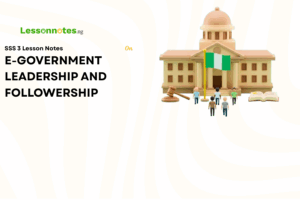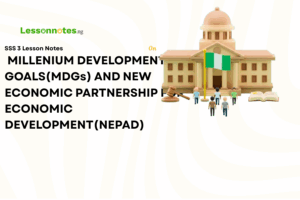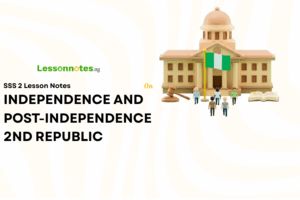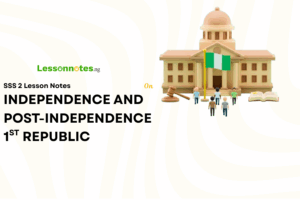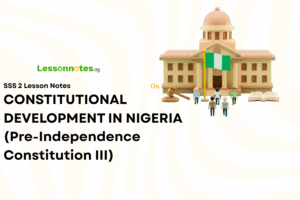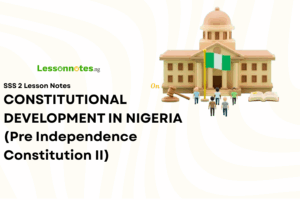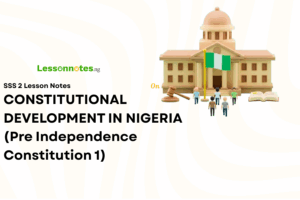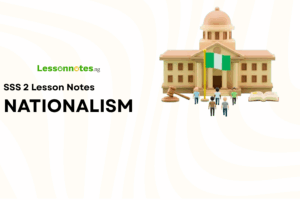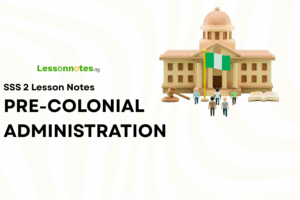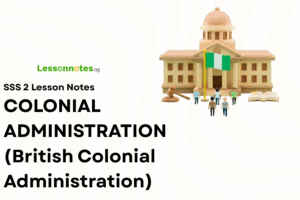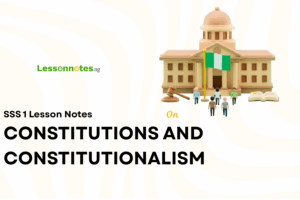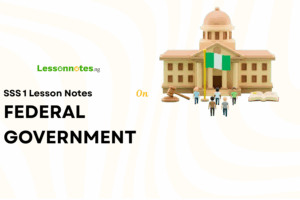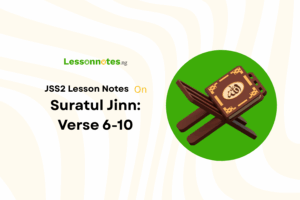Monarchy SS1 Government Lesson Note
Download Lesson Note
Lesson Notes
Topic: Monarchy
MEANING OF MONARCHY
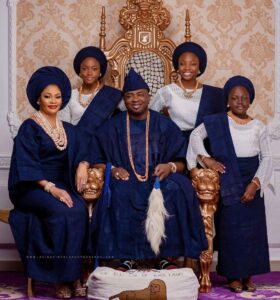
Monarchy may be defined as a system of government in which a king or a queen is the head of state and the government. In some countries, the monarch is the sole ruler and has absolute authority. This means that the power of the monarch is unlimited.
FORMS OF MONARCHY
- Constitutional Monarch: This is the type of monarchy whereby the monarch has limited power and authority, which he or she derives from the constitution. In this system of monarchy, the monarch is only a ceremonial head of state. Examples of constitutional monarchies are; Morocco, Jordan, Kuwait, and Britain.
- Absolute Monarch: This is the type of monarchy whereby the monarch has absolute or unlimited powers. The monarch does not derive his powers from the constitution but rules by divine right. Examples of absolute monarchies are; Tsar Nicholas 11 of Russia, King Khaled of Saudi Arabia and so on.
MERITS OF MONARCHY
- Unity and Orderliness: Monarchy brings about unity and orderliness in the political system since power is vested in a single ruler.
- Emergency: It can easily adapt to emergencies as the monarch need not consult anyone before making decisions.
- Harmonization: it helps to harmonize different interests and prevent social strife.
- The monarch is a historical and spiritual figure as the custodian of the customs and traditions of the people.
- National loyalty is encouraged because obedience to the monarch is seen as obedience to God.
- The king or queen may serve as the protector of the people.
DEMERITS OF MONARCHY
- Monarchy does not accept the principles of popular sovereignty.
- A monarch could be despotic to keep the people weak, so that they may be unable to resist him.
- The divine right of the monarch makes their subjects passive participants in the political system.
- Most public officials in a monarch are not elected.
- Competent citizens, who are not from the royal family, may be left out of government.
CHARACTERISTICS OF MONARCHY
- Ownership of Government: The authority and powers of the state rest on the king.
- Hereditary: Ascension to a leadership position is by birth.
- Checks and Balances: In some forms of monarchy, constitutional monarchy, the ruler is under check by the constitution.
- There is no separation of powers, as the executive, legislature and in some cases even judicial powers are all concentrated in the reigning monarch.
- No constitutional limitation: in some forms of monarchy, absolute monarchy, the ruler has no constitutional limitations.
- Despotic ruler: A monarch could be despotic and not ready to change.
- Countries using the monarchical system of government are characterized by religious homogeneity.
- Emergency: Monarchy could be adopted to make for emergencies.



